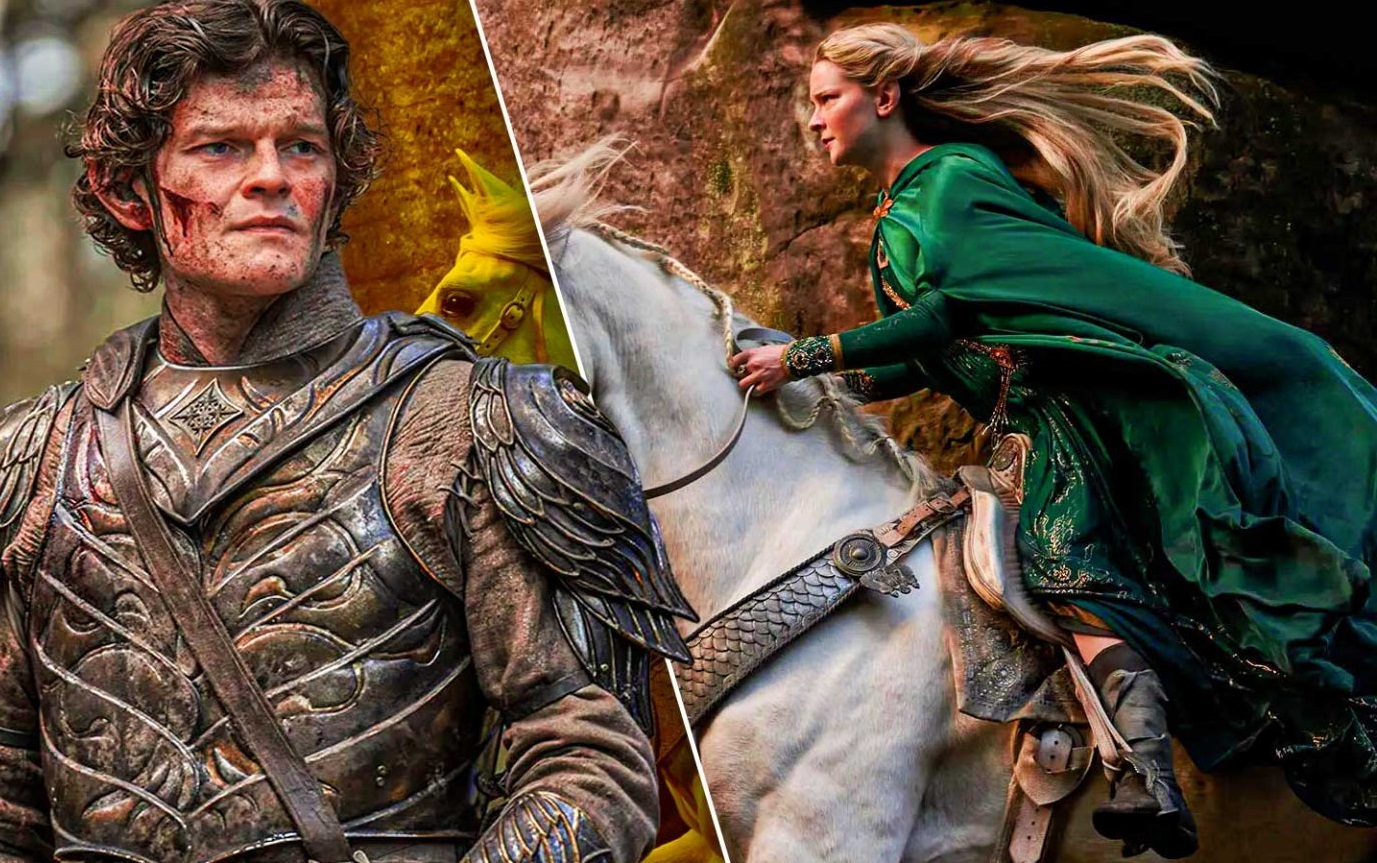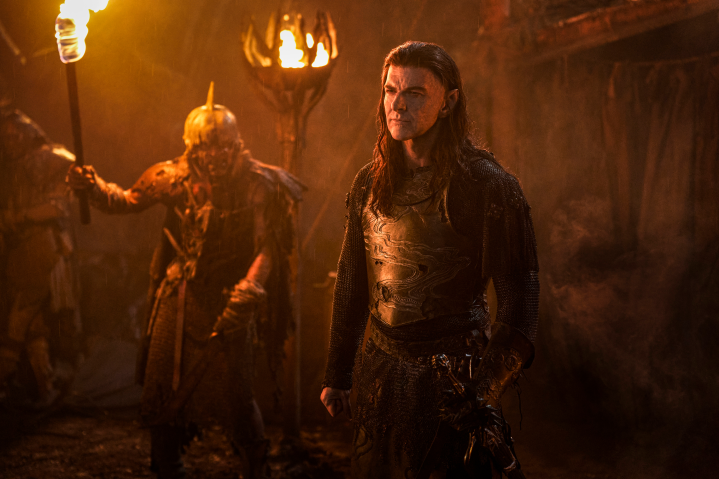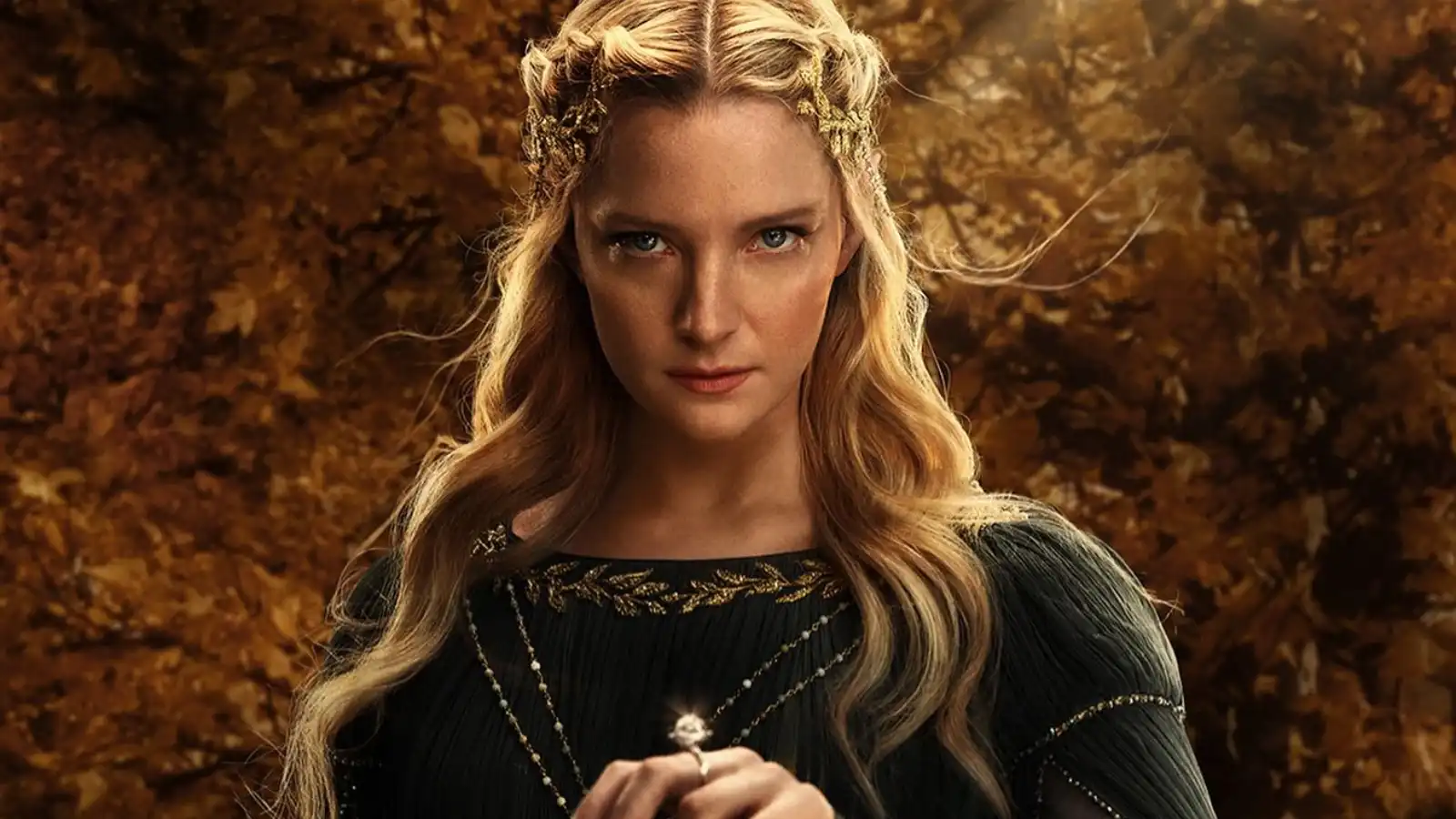The chief sin of Amazon’s The Rings of Power is that it is often simply dull
“Woke” is a term much overused by those on both sides of the culture war but — a little like pornography — while it may be difficult to define, you absolutely know it when you see it.

The capture of the entertainment industry by an ideology — perhaps more accurately described as a group of roughly consanguineous ideas that seem, superficially, to be the Right, Kind and Thoughtful beliefs to hold — seems now to be absolute. Fiction of all kinds has been affected, but heroic narratives have proved especially vulnerable, perhaps because of the size and dedication of their audiences.
You will doubtless know the kind of thing I mean. The contemporary industry offers an emphasis on diversity of various kinds, defined or not, appropriate or not, as well as a quality of preachiness — the expectation that the viewer should share the avowed beliefs of the “creatives,” and that, if he doesn’t, it is a grave failing which requires urgent redress.
“Woke” makes John le Carré’s Peter Guillam — played by Benedict Cumberbatch — a homosexual in the movie version of Tinker, Tailor, Soldier, Spy, rather than heterosexual, as in the novel. It has Queen Latifah take Edward Woodward’s old role in The Equalizer, Kenneth Branagh’s Hercule Poirot being given a jazz singer love interest in Death on the Nile — a piece of reductive cliché that does nothing for the character as conceived and written — and, for that matter, John Malkovich’s iteration of the same detective in the BBC’s The ABC Murders battling his way through a Britain so absurdly shot through with anti-European xenophobia as to be inadvertently comic.

Vintage characters who might now be considered “problematic” are presented with the raised eyebrow of disapproval. Take James Bond. Reduced in No Time to Die, his most recent appearance, to the sort of soppy dad who wells up at the mere sight of his daughter, Bond no longer features in new literary adventures at all, Ian Fleming’s estate seemingly preferring to commission twenty-first-century stories about other “Double O” agents or cozy crime mysteries about a “reimagined” Q. There is no Bond film in production or development at the moment, either — he was killed off at the end of No Time to Die — and it is not absurd to wonder if the character will ever return in the form that Fleming created him, as a white, heterosexual man with conservative politics, or if this is unacceptable in the modern era.
Similarly, the most recent splinter from the Star Wars universe, The Acolyte (mercifully canceled after one season), sees a group of lesbian space witches create life between them (no need, thank goodness, for the patriarchy there) and a recent episode of Doctor Who features the eponymous Time Lord (now played by the black, queer actor Ncuti Gatwa) actually stopping the adventure so he can recollect the events of a story shown on British television in 1975 and modishly decry its “cultural appropriation.”
These regrettable and creatively barren decisions have also affected original texts. Try watching, say, Dumbo on Disney’s streaming service, and you’ll have to read through a disclaimer note on the evils of racism first. Try finding copies of Fleming’s original James Bond novels or many of Roald Dahl’s stories for children and you will have to resort to eBay or to second-hand bookstores to avoid various ham-fisted “improvements” made by present-day editors.
Much of this comes to mind when watching what is apparently the world’s most expensive television series: Amazon’s The Rings of Power, based on the work of J.R.R Tolkien. Of all the examples I have given, Tolkien may be the most resistant to “woke” dogma, even at the point where the raw power of mythology meets the great steamroller of contemporary mass entertainment.
Intended as a prequel to The Lord of the Rings, its story is, for copyright reasons, merely scavenged and extrapolated from the Appendices to Tolkien’s work. Right from the beginning, plenty of woke tropes are in evidence — a strong female lead in Morfydd Clark’s Galadriel, a brilliant leader surrounded by foolish men who mostly seek to hold her back; a village peopled by hobbits of color; a villain played by a good-looking but Aryan white man — but the chief sin of The Rings of Power is that it is often simply dull. In large part, this is because it resembles every other lavish television drama of our time, with a grand-scale quest, endless side characters and frequently indifferent special effects.
The Rings of Power exhibits a surprising timidity in its storytelling, a blunting of the inherent strangeness of the original tales in its insistence that everyone must be able to see himself represented onscreen in some fashion (the showrunners have already hinted at a forthcoming gay relationship) and in its sheer unwillingness to confuse, provoke, beguile or in any way jolt viewers out of their twenty-first-century bubble of liberal consensus.
Tolkien’s Middle-earth is inherently Catholic and conservative. The book comes out of the author’s direct experience in World War One and was written in the shadow of the second; it can only struggle against the straitjacket of modern drama, with its self-indulgent pacing and emphasis on narrative shocks (much teased beforehand, of course, on social media). The television drama descends from a very different lineage than Tolkien’s, that of the epic drama of Game of Thrones and the like — with the result that its diminution often feels jarring.
Behind all of this, Tolkien himself is a potentially troublesome figure. There have long been criticisms that Tolkien’s own views might now look antisemitic, due to comments made about the inspiration for his dwarves in a radio interview of 1964, in which he said, “Their words are semitic obviously, constructed to be semitic. Hobbits are just rustic English people, made small in size because it reflects (in general) the small reach of their imagination — not the small reach of their courage or latent power.” It should be noted that this is in response to the interviewer asking him “Wouldn’t you say that in many ways they remind you of the Jews?” rather than a spontaneously expressed opinion, but it also echoes a letter that he wrote in which he said, “I do think of the ‘Dwarves’ like Jews: at once native and alien in their habitations.”
Similarly, perhaps because the novel is so deeply English and because it deals with the destruction of malignant forces from beyond, The Lord of the Rings recently appeared on a list of texts prepared by the British government’s anti-terrorism unit; the list speculated that LOTR might lead to readers becoming radicalized and joining “the far right.” MSNBC’s Rachel Maddow also recently took pains to highlight that Tolkien’s books are a “favorite cosmos for naming things and cultural references for a lot of far-right and alt-right figures,” citing the fact that Peter Thiel and J.D. Vance called their companies Palantir and Narya in support of her rock-solid thesis.

Yet set against this, Tolkien himself was anything but a racist or antisemite. Famously, when his German would-be publisher asked him in 1938 whether he was of Jewish descent, he replied to say, “I regret that I am not clear as to what you intend by arisch. I am not of Aryan extraction: that is Indo-Iranian; as far as I am aware none of my ancestors spoke Hindustani, Persian, Gypsy or any related dialects. But if I am to understand that you are enquiring whether I am of Jewish origin, I can only reply that I regret that I appear to have no ancestors of that gifted people.”
He went a step further in a letter to his British publisher, Stanley Unwin, in which he wrote, “Do I suffer this impertinence because of the possession of a German name, or do their lunatic laws require a certificate of arisch origin from all persons of all countries? Personally, I should be inclined to refuse to give any Bestätigung (although it happens that I can), and let a German translation go hang. In any case I should object strongly to any such declaration appearing in print. I do not regard the (probable) absence of all Jewish blood as necessarily honourable; and I have many Jewish friends, and should regret giving any colour to the notion that I subscribed to the wholly pernicious and unscientific race-doctrine.”
Even if he is excused from rumors of racism and bigotry, which have to be seen in context with him as a figure of his age, this does not explain the rapacious greed with which his work has been mined since his death in 1973. The Tolkien expanded universe is not necessarily one that had to exist, and his own misgivings as to a cinematic adaptation of his existing work can be seen in June 1958 when, pointing out the deficiencies of an outline for a possible LOTR movie, he implored his correspondent, sci-fi enthusiast Forrest J. Ackerman, to “make an effort of imagination sufficient to understand the irritation (and on occasion the resentment) of an author, who finds, increasingly as he proceeds, his work treated as it would seem carelessly in general, in places recklessly, and with no evident signs of any appreciation of what it is all about…” The Rings of Power will undoubtedly bring satisfaction to many, but it is hard to reconcile its painfully earnest, box-ticking approach to its subject matter with the wilder, more thrilling original books. Call it wokery, or just greed, but the dilution of Tolkien’s original vision is a small tragedy that needs its own band of valiant hobbits to restore integrity to an increasingly barren televisual incarnation of the Shire.


